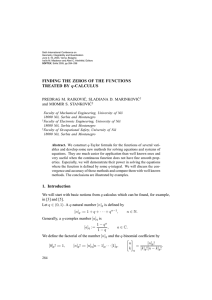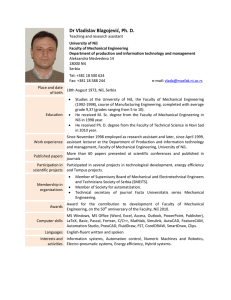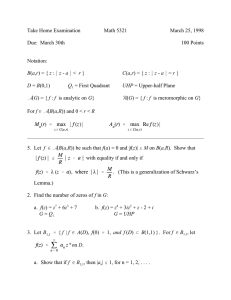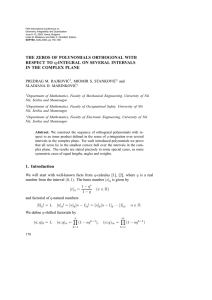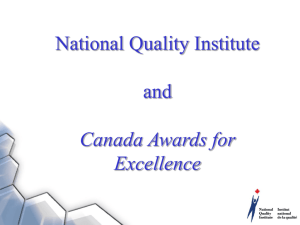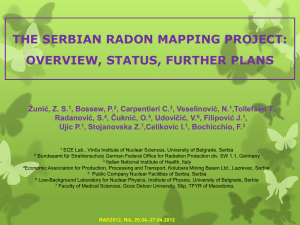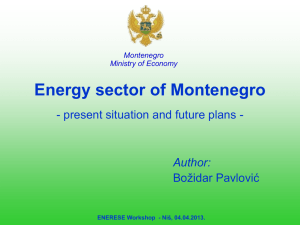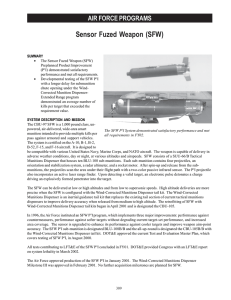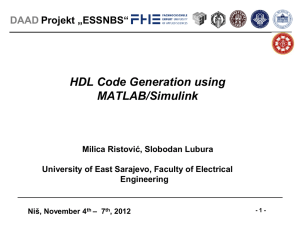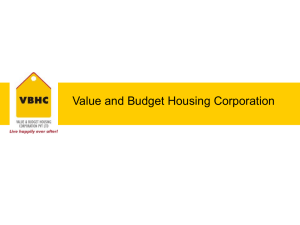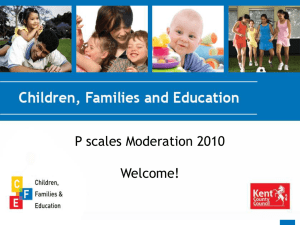TRTA3 approach to NQI - Trade Related Technical Assistance
advertisement
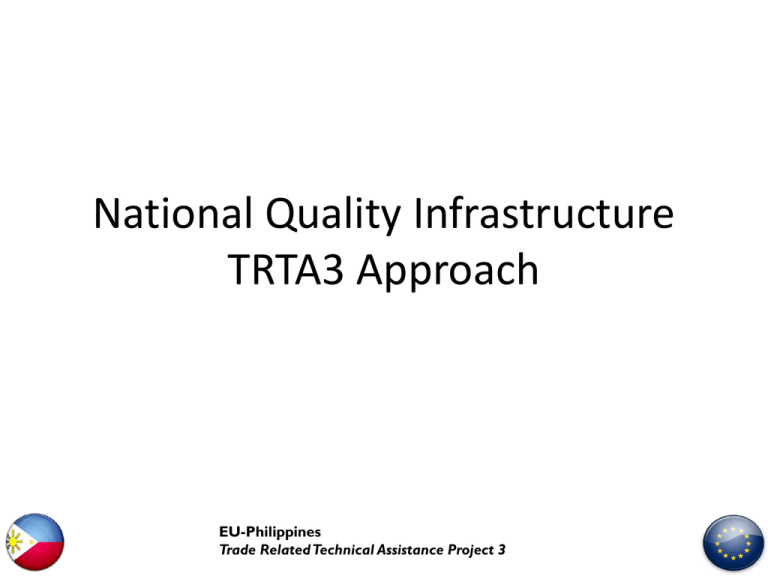
National Quality Infrastructure TRTA3 Approach EU-Philippines Trade Related Technical Assistance Project 3 Philippines Development Plan b. The government shall set up a National Quality Infrastructure to integrate and coordinate series of activities involving metrology, standardization, testing, and accreditation and certification. Chapter 3. page 96 EU-Philippines Trade Related Technical Assistance Project 3 TRTA 3 Financing Agreement: Strengthened capacity to develop and implement National Quality Infrastructure EU-Philippines Trade Related Technical Assistance Project 3 What is NQI good for? • Helps spread best practices and therefore, boost PH industry competitiveness • Ensures compliance of PH products with legal safety and consumer protection requirements • Provides means of compliance to secure market access • Optimize the resources of the public sector by generating growth and business opportunities EU-Philippines Trade Related Technical Assistance Project 3 What is NQI good for? • SMEs cannot sustain the quality of their product and therefore they cannot be reliable suppliers – lack application of standardization and conformity assessment practices • There are sub-standards products on the market – lack of voluntary standardization and market surveillance • Customs rejection of PH products remains high in key markets, e.g. US – lack of standardization, conformity assessment and accreditation • Government in-house capacity cannot test all the products both for pre and post market control – lack of private accredited and trusted conformity assessment bodies EU-Philippines Trade Related Technical Assistance Project 3 What is NQI? What is NQI? What is Quality about? QUALITY Regulators (BPS, BPI, FDA etc ) From Dr Sanetra Private Sector Technical Regulations Voluntary Standardization Mandatory minimum requirements Technically beyond minimum requirements Consumer Protection Best product possible COMPETITIVENESS SAFETY EU-Philippines Trade Related Technical Assistance Project 3 Safety Mandatory Quality Voluntary The lack of NQI means… UNIDO, 2010. Meeting Standards, Winning Markets There is widespread evidence that trade standards related infrastructural capacity and services are weak in many developing countries and that such weaknesses strongly impede efforts to establish and/or expand agri-food exports, and at the same time endanger effective local consumer protection. Is there a NQI in the PH? • Fragmentation of the existing NQI practices and their mandates • NQI existing practices respond mostly to consumer protection, not to developing national industries • The Private Sector does not yet have the ownership, responsibility and recognition in support of the NQI • The overall knowledge of the benefits of NQI is very limited both in the Public and Private sector EU-Philippines Trade Related Technical Assistance Project 3 What we need to do next? Government Regulatory Practices • Learn the distinction between Technical Regulations and Standards • Regulate only on safety, health, and environment protection • Delegate conformity assessment and voluntary standardization to independent and recognized organizations EU-Philippines Trade Related Technical Assistance Project 3 What we need to do next? NQI Institutions • Develop voluntary standardization as an industry driven activity • Reinforce and secure an independent accreditation body • Reinforce financially and institutionally the national metrology laboratory EU-Philippines Trade Related Technical Assistance Project 3 What we need to do next? NQI Legislation/Policy • Formalize a key stakeholders WG to discuss and agree on what the PH NQI should look like • Executive Order on National Quality Policy, which should refer to a NQI Strategy and Road Map • Establishment of a National Quality Council • Drafting of a National Quality Law EU-Philippines Trade Related Technical Assistance Project 3 The TRTA3 approach • Create a ‘temporary’ body to bring together the key stakeholders • Ensure the training, facilitation and ‘challenge’ to the key stakeholders via participation of external experts • Share international best practices • Strive for developing the framework of a formal NQI legislation and permanent NQI Body EU-Philippines Trade Related Technical Assistance Project 3 NQI Stakeholders Meeting(s) NQI Stakeholders meeting Main Deliveries: Recommendations on NQI Policy, PH NQI Strategy, Road Map and draft NQI Law (including NQI Council) Composition: 14 participants (7 Regulators and 7 Industry + Consumers + Civil Society) Timeframe: 2013 to end 2016 Frequency: once every quarter Technical Assistance: Training, resource person and support in drafting the Strategy & Road Map EU-Philippines Trade Related Technical Assistance Project 3 NQI Key Questions • How can we ensure the independence of standardization and accreditation? How are they going to be funded? • Which organization will be in charge of Voluntary Standardization? • How are we going to organize accreditation to ensure efficiency and international recognition? • How much will the public sector delegate to the private sector? • How can we make those NQI institutions self-sustainable? Through competition, through national recognition, through services, through all of them…? • How will we promote a culture of quality?
